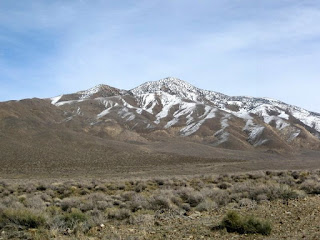< Dry bones in the valley | Index | Speak to the bones >
Ezekiel has been brought into the middle of the valley and the Mighty One has a question for him. Ezekiel answers far more wisely than I would have done!
 'He guided me back and forth amongst them and I saw a huge number of bones lying on the ground in the valley - very dry bones indeed. He asked me: "Son of man, is it possible for these bones to be alive?" I answered: "Yahweh Almighty, only you know".' (Ezekiel 37:2-3)
'He guided me back and forth amongst them and I saw a huge number of bones lying on the ground in the valley - very dry bones indeed. He asked me: "Son of man, is it possible for these bones to be alive?" I answered: "Yahweh Almighty, only you know".' (Ezekiel 37:2-3)Take a really good look - So Ezekiel is there in the valley and Yahweh leads him about amongst the bones. This is not just a casual look, it's a really thorough examination of the situation. Notice how Ezekiel is guided back and forth, this is not 'Go and look and I'll wait here' on Yahweh's part. It's an intimate togetherness in which they both go, we can almost imagine Ezekiel as a child hand-in-hand with a parent.
I should warn you that the rest of this article might seem very gloomy. But please remember, this is a low point in a deep valley and things get better - much better!
For Ezekiel this is all about Israel in captivity under Babylon. For us it should also speak about the church in captivity under the thinking and dictates of the world. We can no more shake ourselves free from the influence of the world than Israel could have shaken herself free from Babylon. Yet we need to be free.
Because we are in the world it is very, very natural to apply processes like planning, teaching, organising and structuring, hierarchies, leadership, and Power Point. There is nothing wrong with these methods in themselves, but they do have the sneaky potential to replace an intimate walk with Papa day by day. Methods alone are death, Jesus alone is life. Where would you rather be? If you choose both, be aware there will be conflict and don't say I didn't warn you.
We can learn from Ezekiel's thorough examination of the bones. We really do need to be 'guided back and forth' amongst the remains of church. It's time to examine the situation very, very carefully and thoroughly. A casual glance is not going to be enough. Father's guidance is essential, not optional. The good news is that there are people being guided back and forth today. I am aware of some of them but I'm certain there are many more I'm not aware of. This is not something we initiate. It's something Father is initiating; guiding us to become aware of the situation.
Dry as a bone - Ezekiel sees that there are huge numbers of these bones. But he also notices that they are very dry indeed. This is significant too. These are not the remains of something that was recently alive. Think about the process of decay - the muscle and other soft tissue is the first to go, skin and hair takes much longer, sinew and cartilage require even longer, and to get to the stage where the bones are disarticulated and scattered and powder dry takes a very long time indeed.
This is true of the church too. Don't miss the point, I'm not saying that individual believers are dead or dry, this is about how we are fitted together and active together - church. What should be a mighty army is dead, dry and scattered; church has been in that state for a long, long time.
So here is Ezekiel arm in arm with the Great One, checking over the state of the remains. And Yahweh looks at Ezekiel and asks: 'Can these bones live?' Only a wise person would answer this correctly. Reason tells us dry, scattered bones cannot live - ever. They have already had their chance. But Ezekiel says: 'You tell me, Lord!'
If only we would stop talking to one another and begin listening to Father together instead. If only!
Death is in the world but life is in Christ. If careful inspection shows dry bones then we need to know that Jesus is our only hope. Every time we have come off the church rails it's because we've turned away from Christ and trusted instead in mission, or training, or... fill in the blanks. We do not need a new programme, we need a new vision of Christ!
When we examine the state of the church and how it needs to change, are we walking arm-in-arm with the King or are we going on our own, for our own ends, in our own wisdom and strength?
< Dry bones in the valley | Index | Speak to the bones >






